Takeshi Hosaka designs Kaku₋Kaku Kanadel courtyard house
Kaku-Kaku Kanadel, designed by Takeshi Hosaka, is a courtyard house in Tokyo, Japan, conceived for a family of three who are also practicing artists. The residence balances individual creative spaces with shared areas, creating a domestic environment that accommodates both private work and family life.
The house is composed of four interconnected volumes, each defined by distinct roof forms. Together, they create a small village-like configuration, linked by gardens, terraces, and passageways. This arrangement establishes a network of outdoor and semi-outdoor spaces that encourage both separation and encounter, recalling the atmosphere of alleys and courtyards.
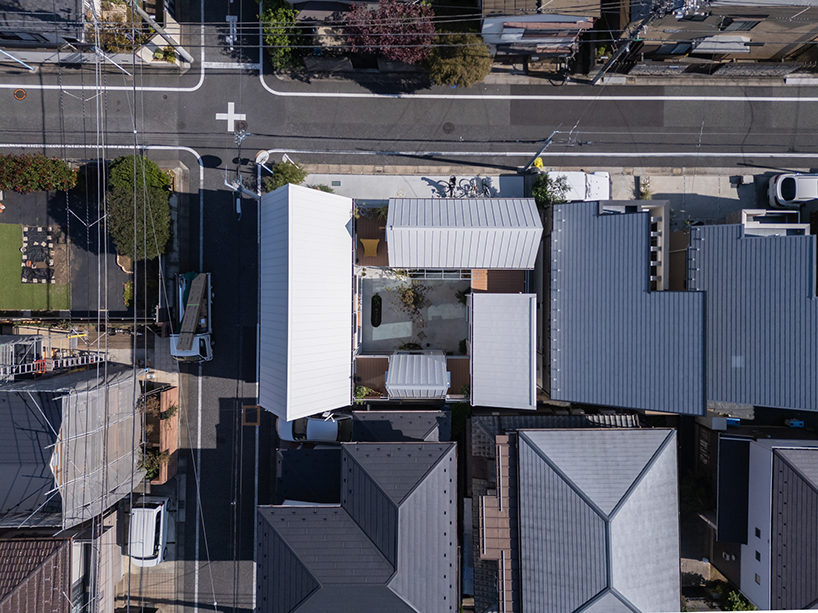
all images by Yamamori
Individual creative spaces are balanced with shared living areas
Each family member is provided with a dedicated wing: one for scriptwriting, one for illustration, and one for musical practice. A shared living room anchors the plan, serving as the central space for gathering. The architectural team at Takeshi Hosaka organizes the spatial layout in a way that allows simultaneous activity across the household while maintaining visual and spatial connections through the open courtyards and terraces.
The project’s name derives from the Japanese words kaku, 書く, (to write), kaku, 描く, (to draw), and kanadel, 奏でる, (to play music), reflecting the creative practices that define the household. The architecture translates these three modes of making into spatial form, where roofs express individuality while the arrangement of buildings and paths creates a collective identity.
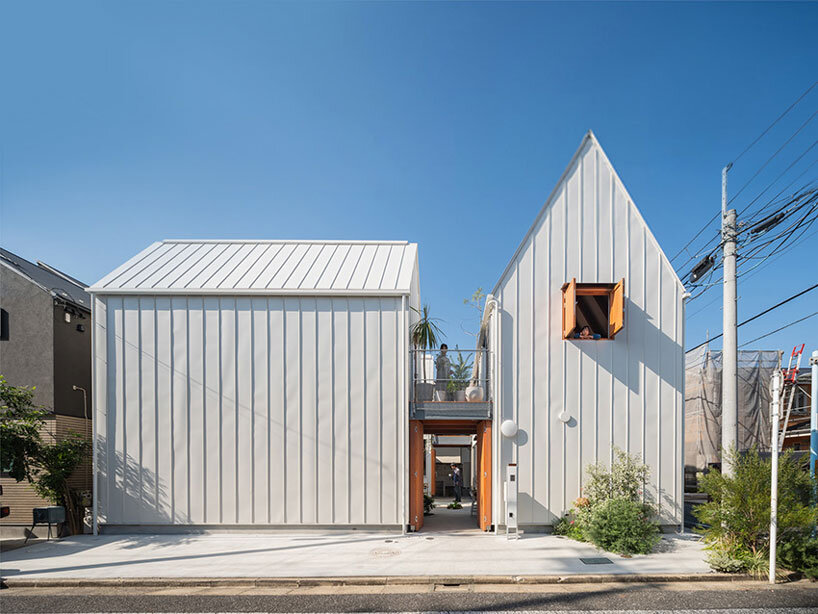
Kaku-Kaku Kanadel is a courtyard house in Tokyo designed by Takeshi Hosaka
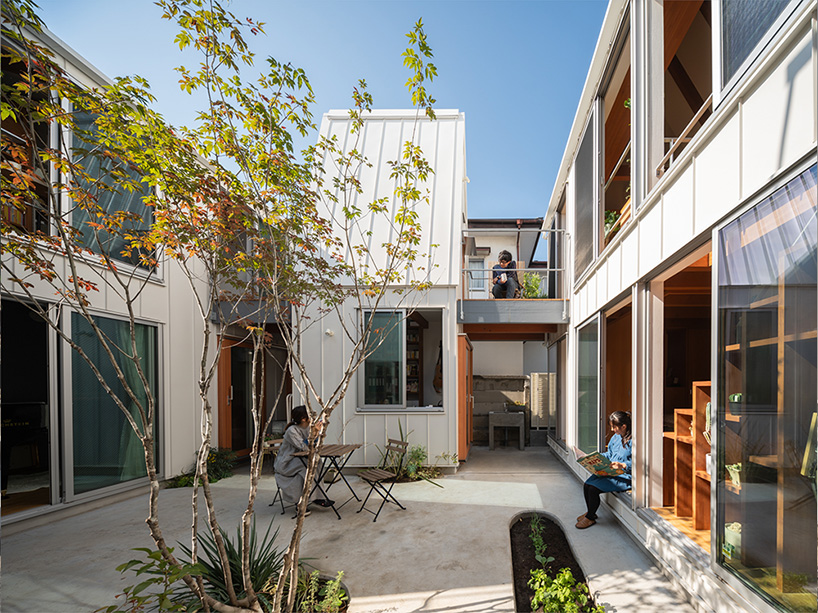
the residence is conceived for a family of three practicing artists
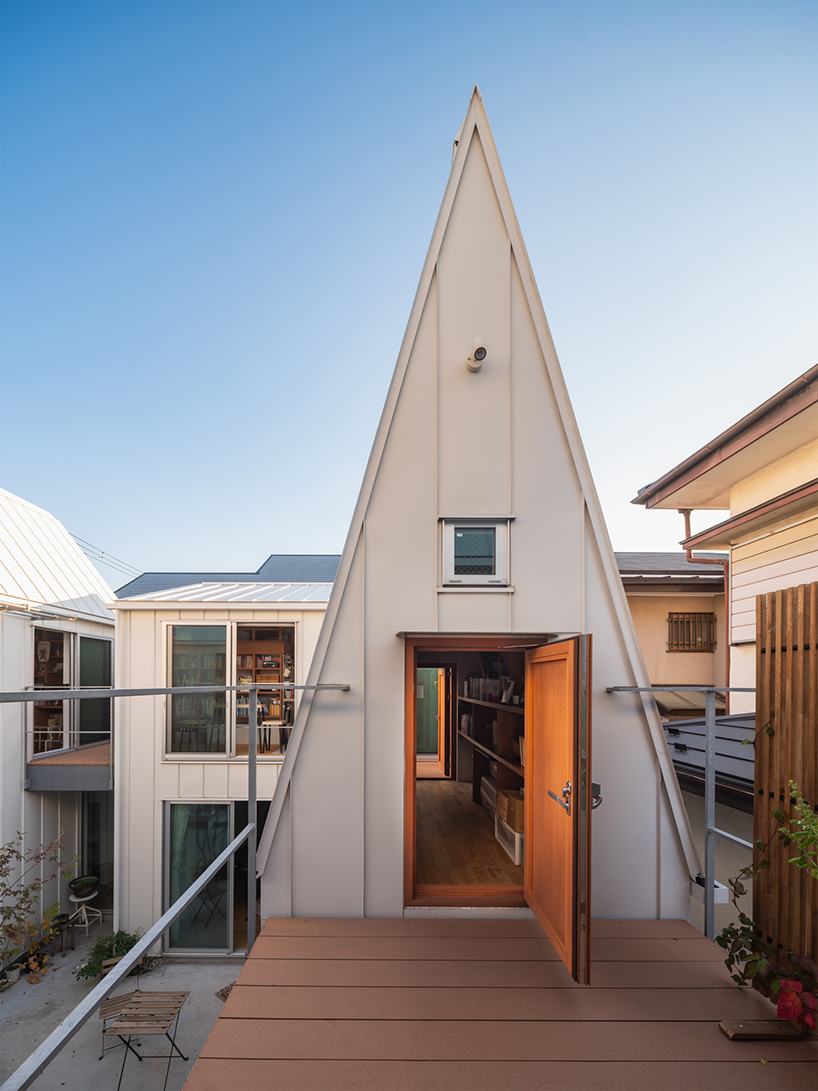
distinct roof forms give each volume its own identity

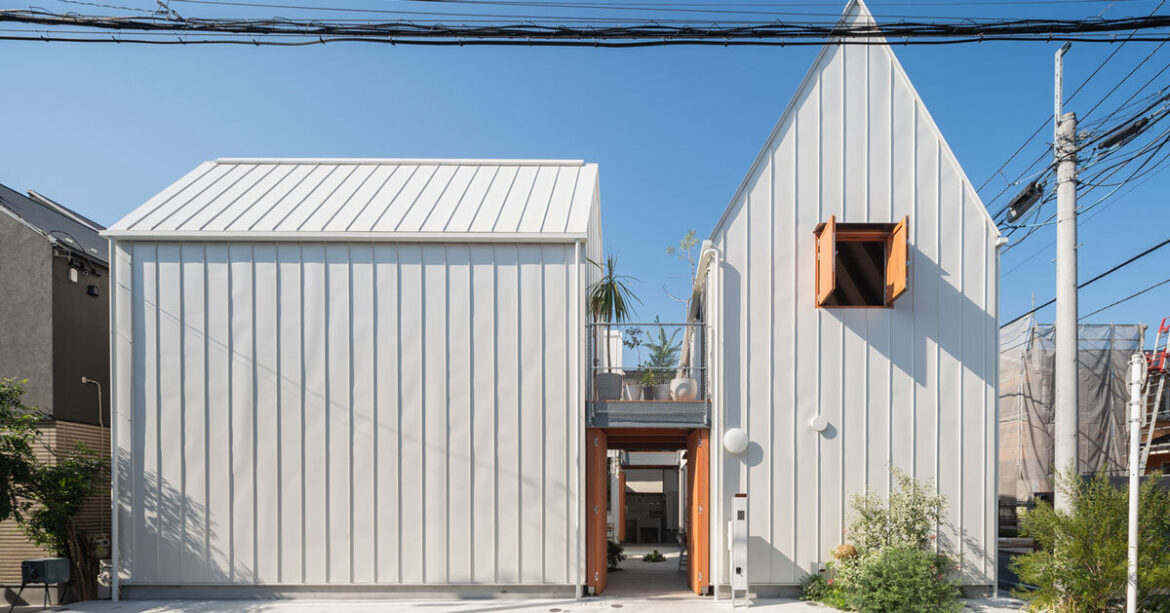
AloJapan.com